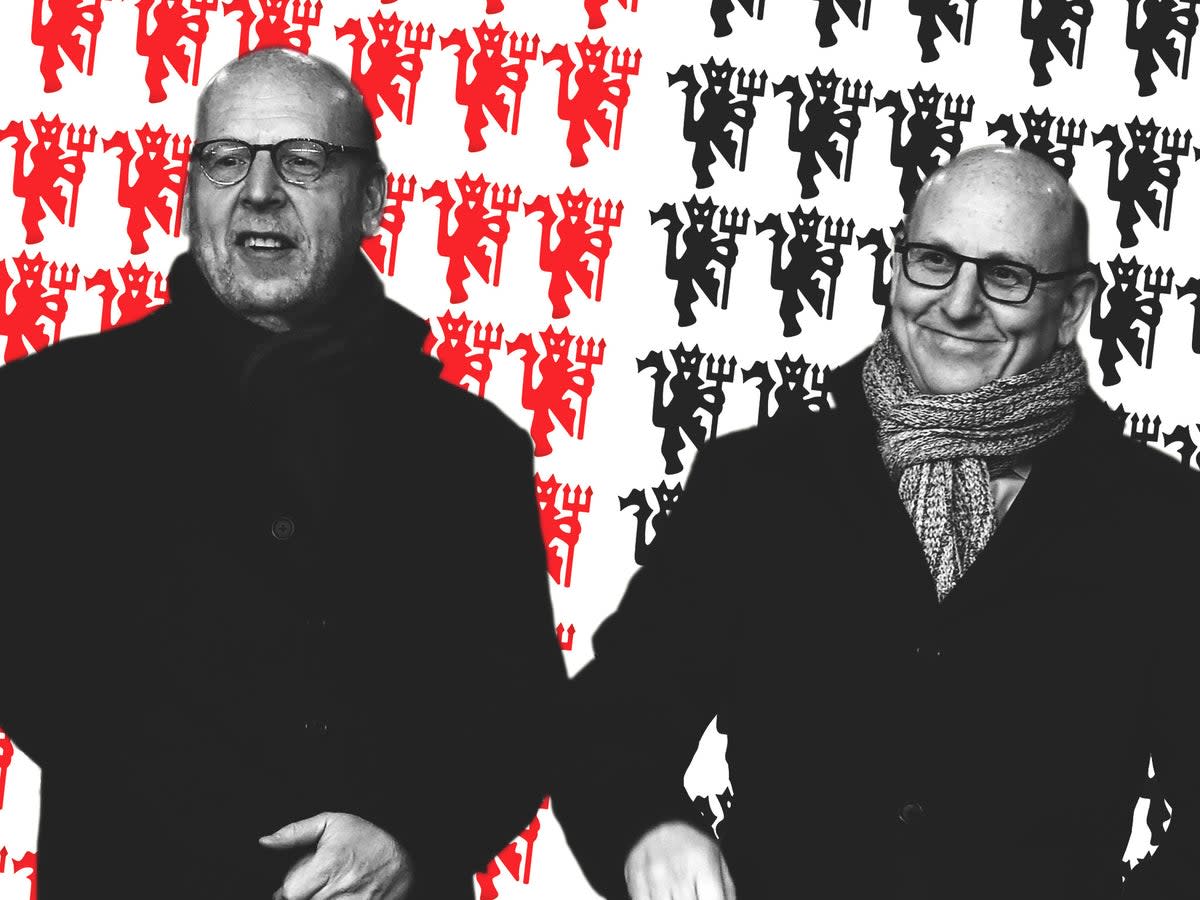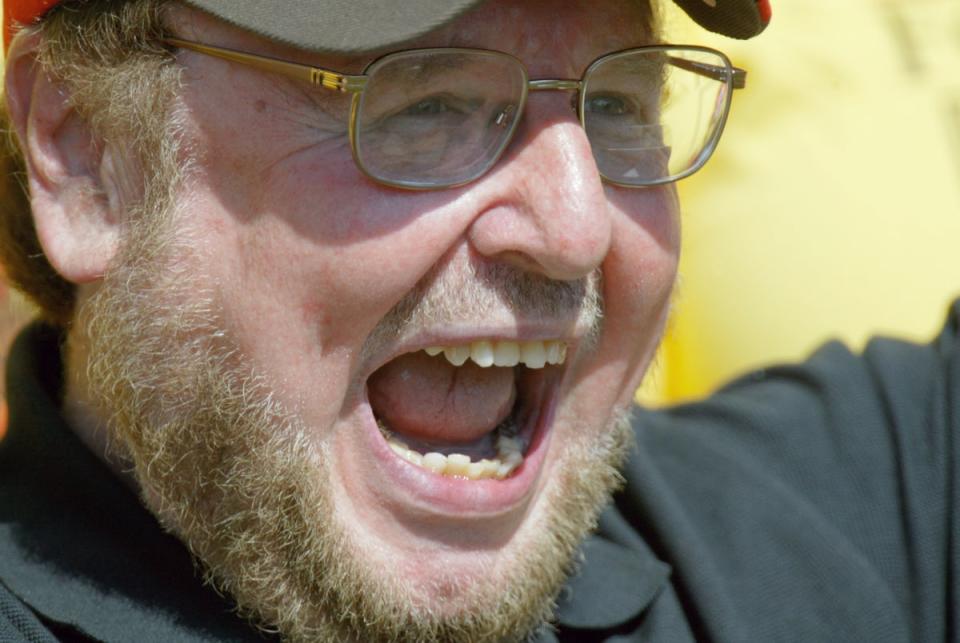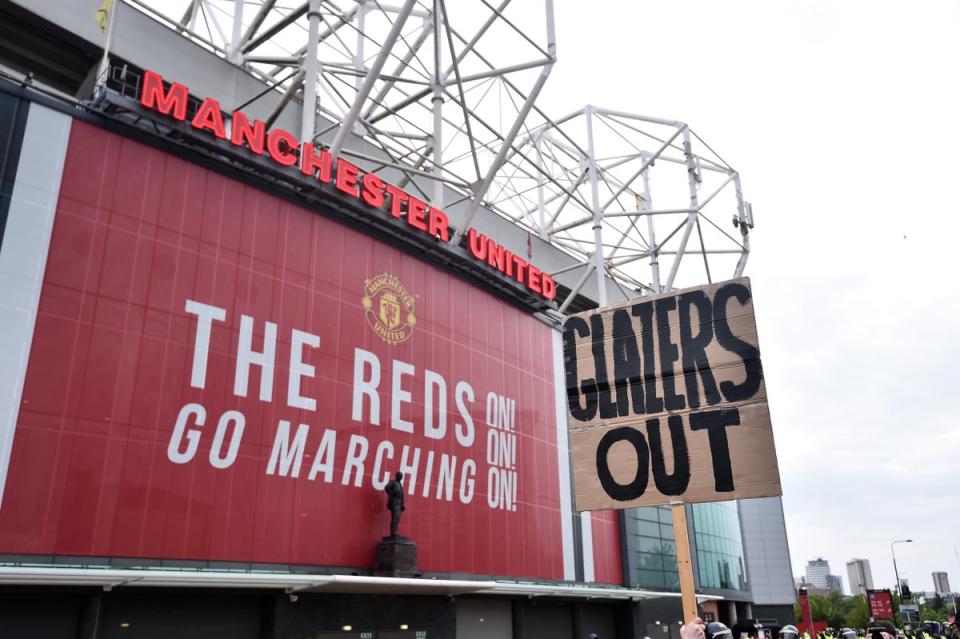Manchester United and the Glazers’s debt explained

The Glazer family’s acquisition of Manchester United remains controversial to this day.
Their £790m takeover in the summer of 2005 came by way of a leveraged buyout: when a significant amount of borrowed money is used to fund the acquisition of a company, with the debt secured against that company itself.
In the case of this leveraged buyout, it was not just any company but one of the most famous and successful clubs in English and world football.
Over the years, that debt, the interest paid on it and the dividends handed out to shareholders along the way – the majority going to the Glazers themselves – have proved controversial.
Through various restructurings of United’s finances, the Glazers have made the debt and the cost of servicing it more manageable, to the point where it should arguably not be a barrier to achieving success on the pitch.
Yet with no league title in nine years and no trophy in five, as United continue to underwhelm and underperform in the post-Sir Alex Ferguson era, the Glazers’s management of the club’s finances remains under the microscope.
How big are United debts?
£495.7m
net debt, as of March 2022
Before the Glazer ownership, United had been virtually debt-free since 1931. That changed overnight with the 2005 takeover.
An initial debt of around £550m was immediately loaded onto the club and ballooned over the subsequent years as the Glazers restructured the finances, peaking at more than £700m in 2010 – around the time supporters launched the first “green and gold” protests.
A £500m bond issue that year allowed for some of the debt to be repaid and the club’s floatation on the New York Stock Exchange in 2012 helped reduce it further.
Yet after 17 years of the Glazers ownership, United’s gross debt figure is at £592m – only slightly less than debt of £603m at the end of their first year in Manchester.
According to the most recent quarterly financial report, detailing the nine months up until March 2022, the club’s net debt – gross debt minus cash reserves – currently stands at £495.7m.
The debt has always been the main source of supporter opposition to the current ownership but the Glazers have little appetite to pay it off, believing it does not affect the club’s ability to operate and compete.
“We think we have a very comfortable position when it comes to this,” co-chairman Joel Glazer said at a fans’ forum last year. “We have debt, but a lot of other clubs do have debt as well. We had made progress in reducing our debt over the last several years. The net debt was meaningfully reduced a couple years ago.
“Unfortunately, the pandemic hit and we have had to use a lot of our cash reserves because we didn’t have any supporters in the stands, we didn't have the matchday revenue, and that has affected us, like it’s affected all the clubs throughout Europe.
“There’s always headline numbers [for the debt], and then there’s the real costs on an annual basis and, again, it’s never affected our ability to operate in the transfer market or do anything else with regard to the club.”

How much do United pay in interest?
£18.2m
paid in interest during 2021-22, until the end of March
Those “real costs on an annual basis” that Glazer refers to are the interest payments United have to make to service the debt.
During the 2020-21 campaign, the last for which there is a full set of accounts, United paid £20.5m in interest. As for 2021-22, according to the most recent quarterly report, the club had paid a further £18.2m in interest up until the end of March.
Both of these figures are substantial amounts of money – enough to cover Frenkie de Jong’s deferred wage payments, for example – but significantly less than during the early years of the Glazer ownership.
During the first five years, after the family had used expensive payment-in-kind loans to finance their takeover, interest payments regularly topped £40m per season and threatened to go much higher.
United were paying rates at an eye-watering peak of 16.25 per cent in those days and often spent more money servicing their debt than they did in the transfer market.
Since the last restructuring of the club’s debt in 2015, the interest payments have fallen to more manageable levels, averaging around £19m a year. Even so, United still pay more in interest each year than most of Europe’s top clubs.
While it is important to be able to ultimately pay off debt, the ability to service the debt via interest expenses is absolutely crucial. The highest interest payments (in cash terms) in 2020/21 were #FCBarcelona £29m, #Atleti £23m, #MUFC £21m, #THFC £18m and #Inter £15m. pic.twitter.com/KlozXlIgum
— Swiss Ramble (@SwissRamble) June 7, 2022
The total amount paid in interest alone since the takeover now stands at approximately £743m – all to service debts that the ownership placed upon the club in order to finance their own takeover.
How much do United pay in dividends?
£32m
dividends paid during 2021-22
The issue of dividend payments is not directly related to United’s level of debt but provokes just as much criticism among supporters, as a means by which the Glazer family take money out of the club.
Though common outside of football, United are the only Premier League club to pay dividends to their shareholders, with the majority going towards the Glazers themselves.
Dividends are typically paid bi-annually at Old Trafford, once in January and again in June.
Three payments were made during the 2021-22 season, totalling around £32m, to make up for a delayed payment in 2020-21. Since United began paying regular dividends to shareholders in 2016, payments have averaged around £22m per season.
Joel Glazer defended the dividend payments when appearing at last summer’s fans’ forum meeting.
“I know this is a subject that a lot of people have a lot of different views on, but when we take things and look at things as a whole, we think that Manchester United is a very well run club,” he said.
“We think clubs throughout football could take a look at us, and there’s a lot of good to be seen when it comes to some of these things that are controversial.
“We’re able to spend with the top clubs throughout Europe, whether it’s wages or transfer fees; we’ve been able to keep our ticket prices low, we’ve not increased them in over 10 years; we’re able to pay a dividend but it’s a modest proportion of our £500-600m of revenue; it’s less than three per cent of that.”
Following the most recent dividend payment in June, just weeks after United finished with their lowest points tally of the Premier League era, the Manchester United Supporters Trust criticised the Glazers for continuing to take money out of the club.
“Today the Glazers pay themselves the lion’s share of an £11m dividend at the end of one of the worst seasons in living memory,” a statement read. “Reward for failure is poor practice in any business, and totally unacceptable given the current state of things at United.”
How does this affect performances on the pitch?

During the first few years of the Glazers ownership, which came with astronomical interest payments, the debt undoubtedly had an impact on United’s ability to compete for players in the transfer market.
Fortunately, they were blessed with having one of the greatest managers of all time in Sir Alex Ferguson and remained successful, winning five Premier League titles and the Champions League.
Since Ferguson’s retirement in 2013, the debt has been restructured, the burden of the interest payments has been reduced and the club has been able to spend more freely in the transfer market as a result, but success has not followed.
Recent underperformance is arguably less to do with the size of United’s debt and interest payments limiting spending but how money has been spent, which raises wider questions about the Glazers’s stewardship of the club and of former executive vice-chairman Ed Woodward.
At the same time, United are still paying around £40m in interest and dividends each season, a sum many supporters argue would not be going out of the club under different owners pursuing a different, debt-free model.

